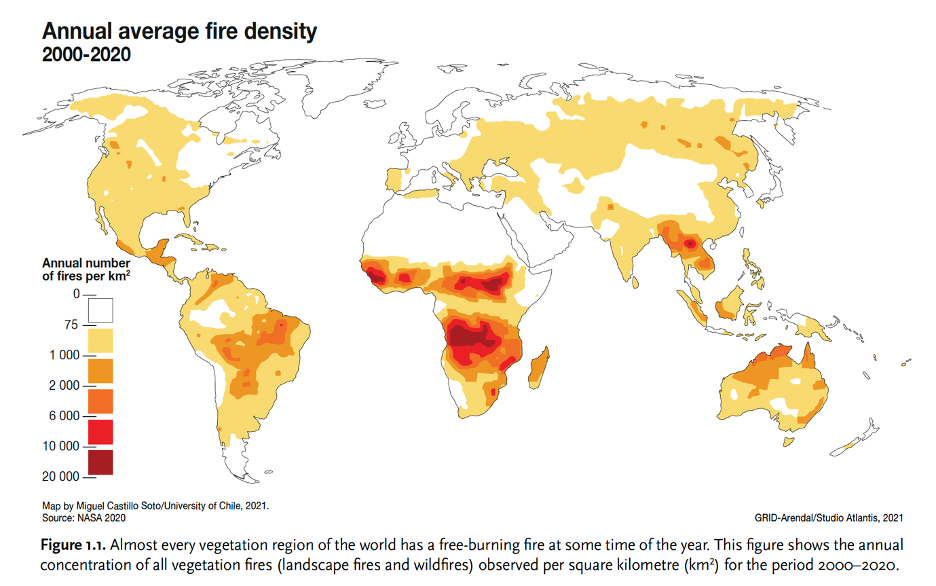Aymeric Maudous joined the 2022 #ClimateTalks Student Forum to discuss his journey from marketing and how drones could help protect tree species and other species living in the forests from extinction as wildfire intensify globally due to climate change.
The United Nations Intergovernmental Panel on Climate Change, released a Report in March highlighting the importance of protecting our natural environment. According to the report, “Globally, less than 15% of the land, 21% of the freshwater and 8% of the ocean are protected areas”. Students Organising for Sustainability, have developed a treaty encouraging global leaders to protect and restore at least 30% of land and marine ecosystems by 2030. This would require a monumental global effort to achieve this target, yet it is possible with the help of some creative solutions, including, harnessing AI and drone technology.
Lord of the Trees is a global reforestation project that combines precision drone technology with the knowledge of environmental experts, scientists, engineers, and indigenous communities to replant seeds and grow new ecosystems in deforested areas worldwide. Their work isn’t just about planting trees, they partner with governments, mine and other landowners looking to regenerate old mine sites, industrial sites and bushfire affected land. One person on foot would have to work full-time every day for a year to plant the 432,000 seedpods that one pilot with five drones can deliver in just 12 hours, at a rate of 2 seedpods per drone per second! And, because these state-of-the-art drones can operate night and day, over a million trees can be planted in just 48 hours.
Biomimicry design uses nature for inspiration to develop solutions to a range of different problems, Aymeric recalls being inspired by birds to develop his seed pod concept, “one night watching a documentary by David Attenborough about the Galapagos Islands. David was explaining that it took millions of years for seeds to colonise those islands. There was an image of seagull droppings and he said those seeds that were carried by birds had the best chance of survival because of the rich nutrients of the bird poop”. And that was Aymeric’s first ‘aha!’ moment. “That’s when I realised this is what we need to do. We’re going to emulate nature and replace birds with drones and create seed pods that would be rich in nutrients, load those seed pods into drones and go back into the landscapes and help reforest.” Watch David Attenborough explain seed colonisation
Regenerating land-based ecosystems will become increasingly important and challenging due to the increase in severity and frequency of wildfires due to climate change. A new Report on wildfires around the world, written by over 50 experts globally and compiled by the United Nations Environmental Program and GRID-Arendal estimated the annualized economic burden from wildfire for the United States alone to be between $71.1 billion to $347.8 billion ($2016 US) and that planning a response to bushfires receives just 0.2 per cent of the total budget for wildfires. It is currently unknown what the global economic burden from wildfires is likely to be, however it is clear from the figure below that a significant proportion of global communities will be impacted.
This statement is an invitation to our university community to start a conversation and share their ideas on how we might reimagine our role as community leaders on climate, to inspire the next generation toward a more vibrant, sustainable future.
The report on wildfires also acknowledges the “growing recognition of the important role that Indigenous and traditional knowledge and experience can play in informing land management practices that assist in the prevention and mitigation of wildfires.” Taking into account terrain, soil composition, wildlife, and surrounding ecosystems takes skill and specialist expertise that organisations like Lord of the Trees have developed in consultation with indigenous communities and local forestry experts to formulate the optimum combination of land care for the establishment and flourishing of ground covers, bushes, trees, and other flora to create the healthiest possible forests that will be more resilient to wildfires and hopefully thrive for decades to come.
Did you know?
-
21% of Australian forests destroyed during the 2019-2020 bushfire season.
-
10% of annual carbon emissions are caused by humans burning or clearing forests, averaging 4.8 billion tons a year between 2015 and 2017.
-
In federally managed forests in the western U.S. today, wildfires larger than 1,000 acres have become nearly five times more frequent and burned areas 10 times as large as in the 1970s. Climate Explained: Wildfires and climate change
Aymeric Maudous recalls the impact of the devastating wildfires in Australia, “If you remember the devastating effects of the fires in the Blue Mountains in 2019, the fire was so strong that it completely sterilised the seed bank that was in the soil. There was no way for the plants to revegetate themselves. We look at the plants that used to grow there and we also work with endangered species, trying to reintroduce into the landscape plants that are on the endangered species list. In New South Wales, more than 60% of the endangered species are not animals, they’re plants.”
Holding two Master’s Degrees, one in International Marketing and one in Environmental Management, Aymeric has a long history of caring about global sustainability. Aymeric’s precision-planting drones represent a revolution in seed deployment and ecosystems restoration on a vast scale. Lord of the Trees, utilises 18 years of forestry research and unique seedpod expertise to plant trees, to restore ecosystems, and to facilitate companion planting. This combined approach is restoring healthy and robust habitats in a fraction of the time it takes to accomplish manually. One person on foot would have to work full-time every day for a year to plant the 432,000 seedpods that one pilot with five drones can deliver in just 12 hours, at a rate of 2 seedpods per drone per second! Recently, Aymeric was hand-picked to be part of an international cohort of sustainability experts to participate in Al Gore’s “Climate Reality Leadership” course. Aymeric currently studies at Yale School of the Environment for the Tropical Forest Landscapes certificate about conservation and restoration of topical ecosystems to address pressing environmental and social challenges.
Tanya Dellicompagni
Program Manager
International Universities Climate Alliance
The International Universities Climate Alliance is convened by the University of New South Wales in Sydney, and its members are leading climate research universities coming from every continent, encompassing thousands of the world’s most accomplished climate researchers, including hundreds who have worked as authors of reports for the UN’s Intergovernmental Panel on Climate Change (IPCC).

